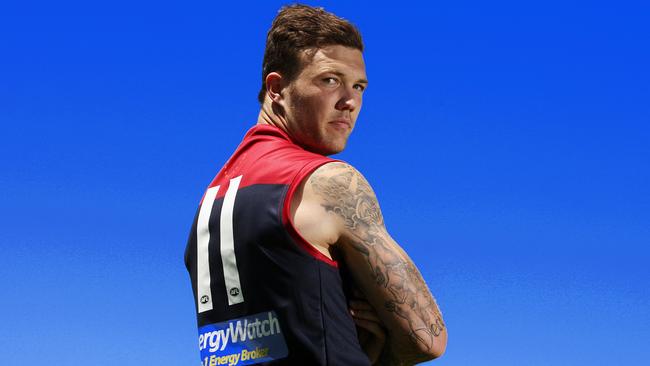Gary Buckenara reveals what really happens on the weekend in the middle of AFL trade period
LATE night text messages, emails and phone calls. The talks never stop during the AFL trade period. Get the inside word on what it’s really like for clubs, players and managers over this massive weekend as Gary Buckenara gives you a behind-the-scenes look.
IF you think trade talks between clubs stop because it’s the weekend, think again.
There is no such thing as down or quiet time during the AFL trade period — and that includes Saturday and Sunday.
The phones of list managers, recruiting managers and player managers all turn into hotlines, and there’s no time in the day when your phone isn’t ringing.
And that includes late night text messages, emails and phone calls.
Whether it’s sharing information on where a potential deal your club is involved in is at, checking whether you’re going to agree to a proposed trade, or passing on information you’ve heard about other deals around the league, it’s non-stop.
------------------------------------------------------------------------------------------------
READ MORE: GARY BUCKENARA LIST ANALYSIS COLUMNS
COLLINGWOOD: WHY THE PIES WILL BE FLAG CONTENDERS IN 2019
MELBOURNE: WHAT JESSE HOGAN IS REALLY WORTH
CARLTON: HAVE THE BLUES BOTCHED THEIR DRAFT PICKS?
ESSENDON: WHAT THE BOMBERS SHOULD GIVE UP FOR SHIEL
GEELONG: WHAT TIM KELLY IS REALLY WORTH
SYDNEY: CAN THE SWANS STILL WIN A FLAG WITH BUDDY?
GOLD COAST: WHAT SUNS PLAYERS ARE WORTH IN TRADES
------------------------------------------------------------------------------------------------
The weekend is no different — it’s not just a business-hours job.
It’s critical for all clubs to be across what’s happening with other deals though, because often they affect what you’re doing.
Every year there are either one or two deals that holds up everything else — this year it’s the Jesse Hogan/Lachie Neale situation.
This is the most important time of year for the list management team, so while coaches might be away overseas doing either professional development or having a holiday and players enjoy their off-season, your club’s list bosses are hard at work seven days a week and nearly 24 hours a day.
That’s not to say the wheelers and dealers aren’t doing weekend activities like playing golf or spending time with family — they are — but the difference is their phone is constantly ringing.
So if they’re playing golf their playing partner will be getting frustrated because the phone will be ringing every second shot.

Their partner will say “turn that bloody thing on silent”, but they can’t afford to.
I remember a time when I was lying in bed and my phone was buzzing because we had a group chat going with our list management team at the Hawks and information was being passed and everyone was being copied in.
That has happened plenty of times and the suspense kills you — you just have to have a look at it and find out what the latest is, either with your club or around the league.
That is just the landscape at this time of year because you need to ring the player, the manager, your recruiting manager, and if no deal is agreed to then you have to go back to the rival club and say “no, you need to do better” and the whole process starts again.
The CEO, general manager of footy and coach all have to tick off the deal, too.
Things often happen quickly whenever deals are being negotiated, so it’s imperative your phone is on you at all times. You need to make quick decisions.
Deals can be struck at any time, and, in my experience, there have been numerous times where deals have be ticked off on the weekend and AFL paperwork signed, it was just a matter of officially lodging it with the AFL on Monday.
But unofficial congratulatory and “welcome to the club” text messages and calls definitely occur between list managers and the player and the coach and the player.
A good example was in 2011 when then-Brisbane Lions forward/ruckman Mitch Clark seemed to be headed for Fremantle.
But after a Saturday of negotiations and phone calls, he changed his mind to join Melbourne and a deal to send him to the Demons for pick No.12 was effectively struck in a matter of hours.
By the Saturday night the deal was ticked off and it was just a matter of lodging the paperwork with the AFL.

Often the weekend also acts as the turning point in the trade period.
Week one is a bit like a boxing match — for the first few rounds you’re sussing out your opposition and in the later rounds the punches come thick and fast because you’re getting a bit urgent.
There is no time for mucking around.
That’s what the trade period is like — the first week is about seeing what deals you might get involved in and the second week is about getting serious and securing the deals, but you’ve got to make quick decisions or you’ll either miss out or be forced into taking a lesser deal.
It often is a case of who blinks first.
All the negotiations and posturing between clubs that occur on a weekday during the trade period also happen on the weekend, it’s just at a different location.
Don’t be fooled just because radio, TV and the papers have gone a bit quiet, progress is being made behind the scenes.
Originally published as Gary Buckenara reveals what really happens on the weekend in the middle of AFL trade period
